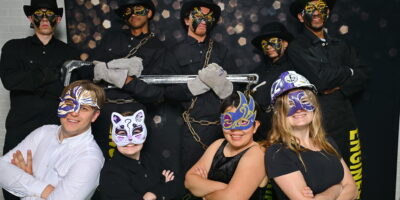Q: What’s universally known to be difficult to start, exhibits a high variability in marking and should probably not be included in term averages?
A: Work Term Reports!
Hey everyone! It’s been a busy last two weeks as always, and I’m here to give my regular education updates. A couple of topics of interest today.
Work Term Reports in Averages
The biggest buzz this week is that the faculty is currently considering including work term report marks in our term averages. For those who haven’t written one yet, a work term report is a ~20-30-page report you create during (typically) your third to fifth work term as part of your graduation requirement. The type and technical content required for the report varies by department, but typically, a student is required to come up with a problem statement related to their co-op term, find and assess multiple solutions to the problem, and determine the optimal solution.
Why is this such a big deal? Well, work term reports can be challenging to start and complete for a number of reasons. Most students find that the topic of the report depends highly on the nature of their work term – it can be a scramble to find a synthesis topic for those not in design-related positions. Access to data is also usually hit-and-miss; some organizations provide their students with report-quality data, while others do not. Granted, self-study reports are an option, and it all comes down to whether students can find topics they are truly interested in.
Currently, with the exception of Management Engineering, departments do not include work term report grades in students’ term averages. Work term reports are essentially pass-fail assignments, although the numerical mark is indicated on transcripts. The faculty is considering changing this practice on the basis that they think students are not taking work reports seriously enough, and are consistently submitting low-quality, last-minute work for faculty to mark.
The discussion is in the preliminary stages right now, with the Associate Dean of Co-operative Education and Professional Affairs looking to gather data regarding the variability of marking, marking process and typical grade distributions within each department. Many students have spoken to me regarding the challenges of finding topics they are interested in, a trend of inconsistency between markers and contradicting or missing guidelines. The next meeting with this committee is on November 30; if you have anything additional you would like me to voice regarding work term reports, just send me an email at vpeducation.b@engsoc.uwaterloo.ca!
WatPD Improvements
I met with Erin Smith, the Associate Director of Program Improvement for WatPD. We discussed whether student feedback from end-of-course surveys has been used to improve the Professional Development program and in what way. Erin graciously showed me a summary of the typical types of PD feedback students give, and provided some interesting insight on the process of creating PD courses at Waterloo.
I will be summarizing the findings of this meeting in a blog article later in the week, as there is a lot to say and not enough space in this IW article; look out for it at engsoc.ca!
Other Meetings: FEDS, Senate Undergraduate Council
Council asked me this week to provide more updates on the other meetings I attend, so here I am, dutifully relaying information. Truthfully, most of this was not of interest to the average student.
The FEDS Education Advisory Committee met last week to discuss a few campus-wide issues such as Learn down-time during midterms, whether students should pay instructors’ field trip travel fees and pre-enrollment policy. In general, there were no decisions items to update anyone on.
The Senate Undergraduate Council consists of various professors and associate Deans across the different faculties, and decides on items to send to Senate. Most of these items were related to curriculum wording, and there was discussion on flying practice in the Aviation program and a new joint Biology program between Conestoga College and UW.
Well, that’s it. Ciao for now! On to better and less wordy things.




Leave a Reply